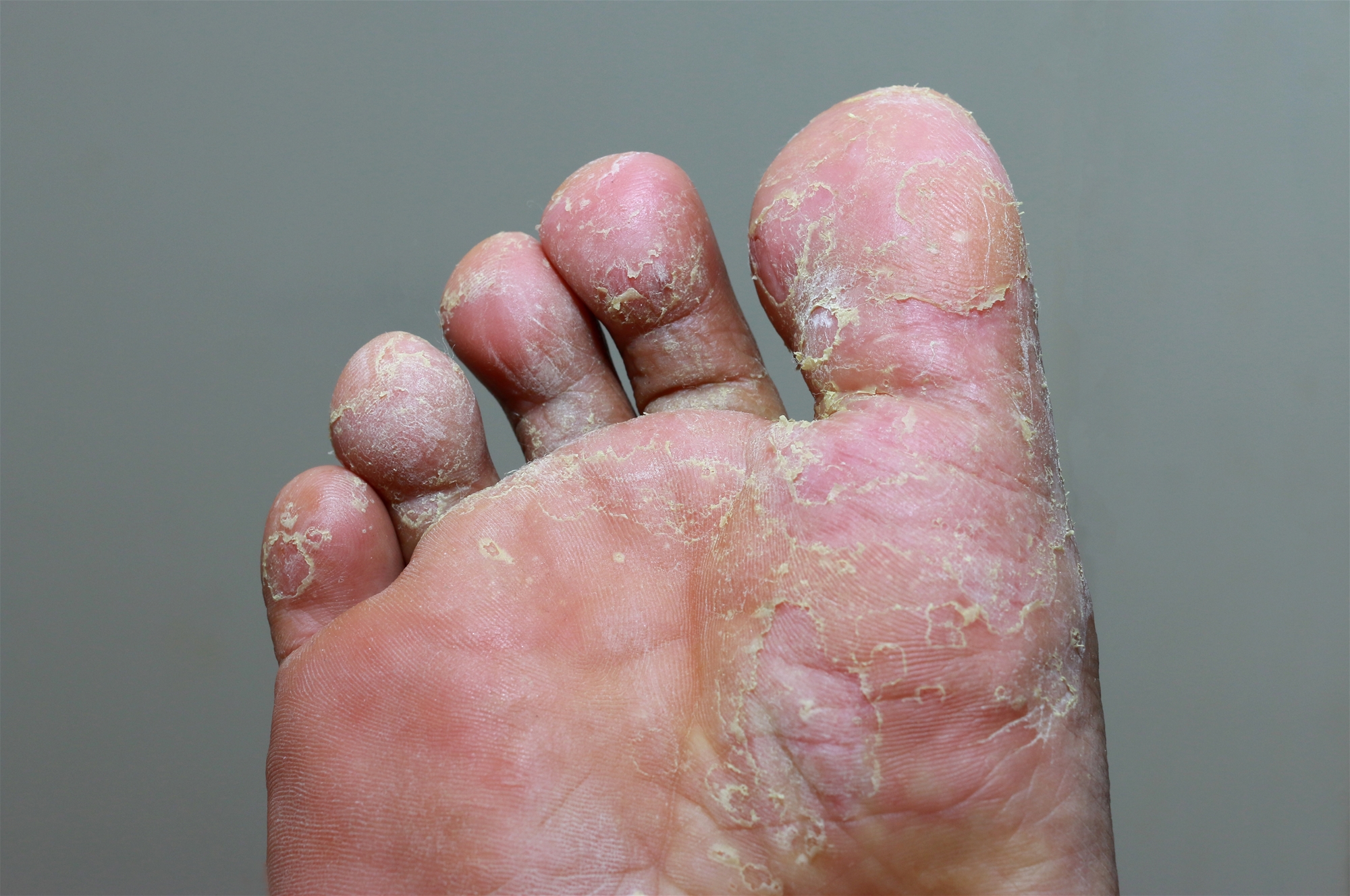Tinea pedis, commonly known as "Hong Kong foot," is a kind of superficial fungal infection occurring in the foot, often worsening in high temperature and wet summer.
In the early stage, scaling can be seen between toes, sometimes the skin may blister and cracking or erosions can be found between toes. At this time, it is accompanied by bacterial infections, pustules and odorous exudates. If not treated, it may deteriorate into cellulitis. Chronic tinea pedis can cause corneum thickening, even laceration, and often invade toenails, forming tinea nails (commonly known as ringworm of the nails), which is more difficult to treat.

Treatment and Prevention
Patients must patiently observe the instructions of the physician to use the drug, apply appropriate amounts twice a day, and continue the treatment for 1 month after the symptoms completely disappear for a complete cure.
- Improvement of foot environment: Avoid high temperature and humidity, dry your feet after washing, spray prickly-heat powder or powder containing antifungal agents; wear cotton or cotton/wool blended socks and sweat-absorbing and breathable shoes as far as possible, and shorten the time of wearing sports shoes and shoes.
- Externally applied agents are not effective for onychomycosis. Oral antifungal drugs are needed to achieve effective treatment. But not every patient is suitable for oral medication. Dermatologists should be consulted.
- Socks, slippers or insoles worn during illness are recommended to be replaced or sanitized before use to avoid re-exposure to sources of infection.
- Avoid using public slippers. Patients should not walk barefoot on the ground to avoid infecting others.
- Avoid scratching to prevent secondary bacterial infection. Seek medical advice as soon as possible if there is redness, swelling, heat or pain.

